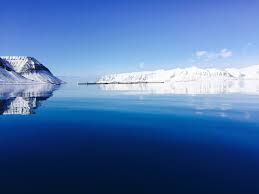Shock as Iceland salmon licences revoked

TWO Icelandic coastal communities have expressed shock and dismay after licences to allow a major expansion of fish farming were suddenly revoked.
Late last year, the Icelandic Food Administration gave the green light to the companies Fjarðarlax (owned by Arnarlax) and the Arctic Sea Farm to produce up to 17,500 tonnes of salmon in Patreksfjordur and Tálknafjörður, both in the Westfjords region.
But the country’s Environmental and Natural Resources Complaints Committee, which is made up of lay members and includes an environmental resources researcher, has just overturned that decision.
It argued that an environmental assessment by the companies and the administration’s planning agency on the impact of the proposed developments did not have a sufficiently sound basis or the right information.
At the time, the planning agency did warn of certain environmental risks, such as salmon escaping into the sea and, as a result, imposed a number of strict conditions on the two companies.
Fjarðarlax had planned to develop facilities to produce 10,700 tonnes of salmon, while Arctic Sea Farm had been granted a licence for 6,800 tonnes. Both companies are thought to be seeking legal advice.
Unsurprisingly, the ruling has brought a sharp response from the affected communities, which together barely number 1,100 inhabitants.
They said in a statement that the decision would have ‘an enormous impact on employment and business’ in the area.
They also pointed out that two highly experienced companies were behind the development and had carried out thorough research and been transparent about their plans.
The developments, the community statement added, would have been in harmony with nature and the people who live in the community.
They described the decision as a ‘great disappointment’ that would affect the lives and future plans of those who live there.
Both communities now plan to appeal directly to the government in Reykjavik in the hope this latest ruling can be overturned.
Patreksfjordur and Tálknafjörður were once vibrant fishing villages, but now say that aquaculture was not only an environmentally friendly activity, but also generated significant economic and export benefits.

